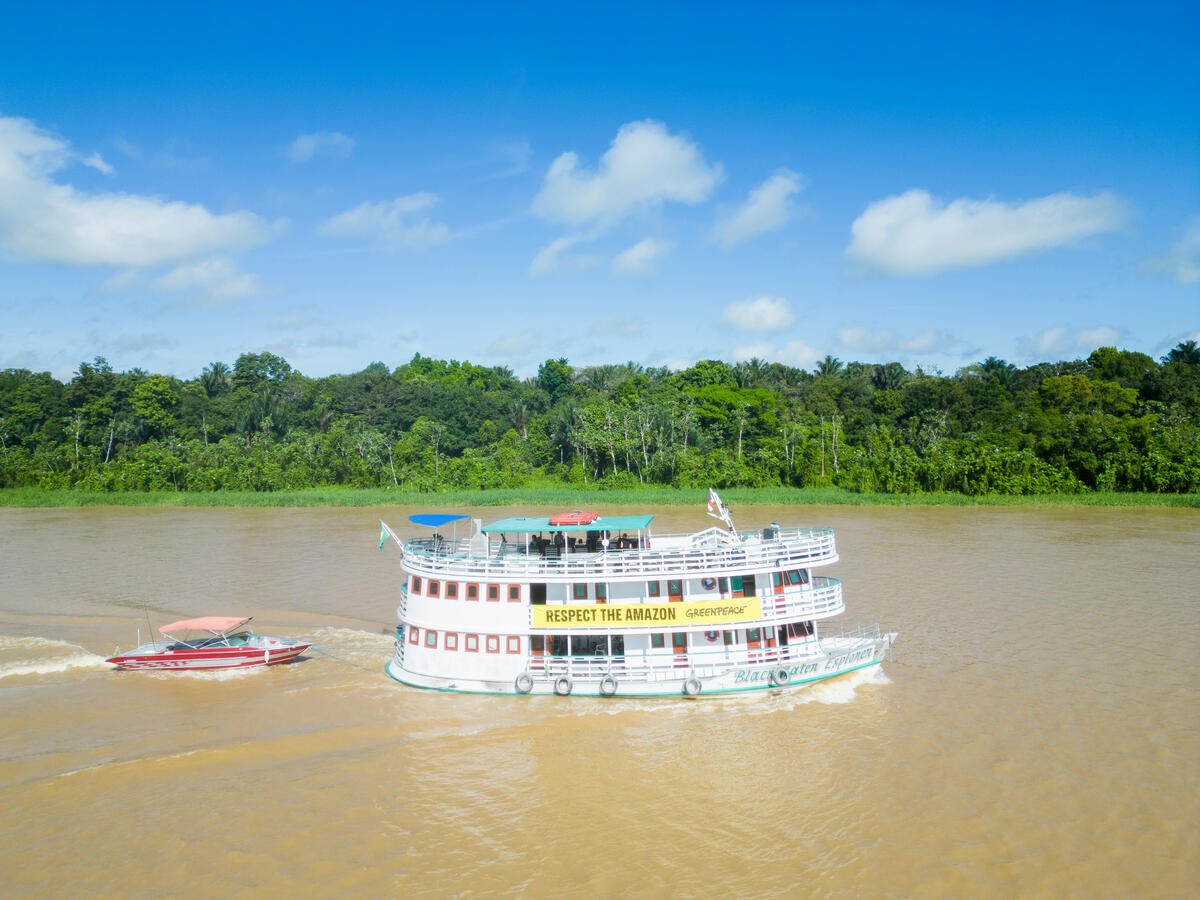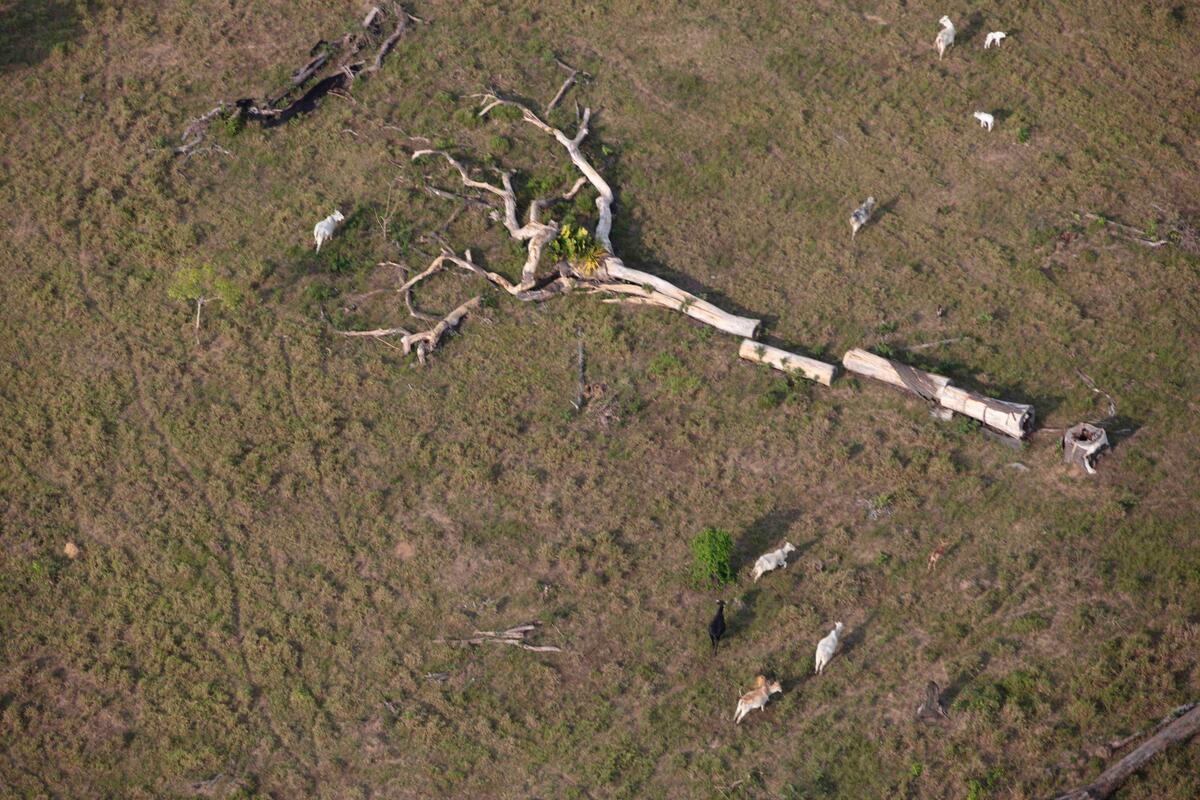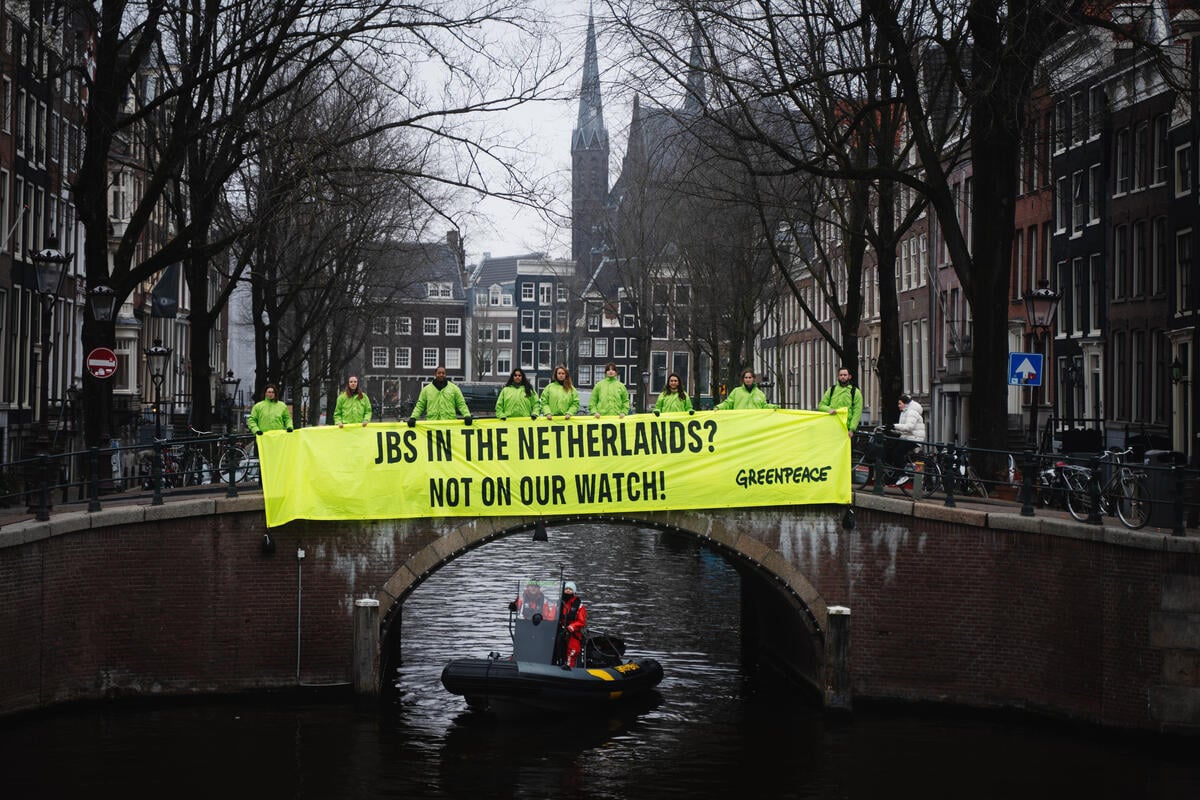Home to eagle-owls, wolverines, brown bears, rare plants and animals, the Dvinsky Forest is one of the last remaining Intact Forest Landcapes in the European part of Russia.
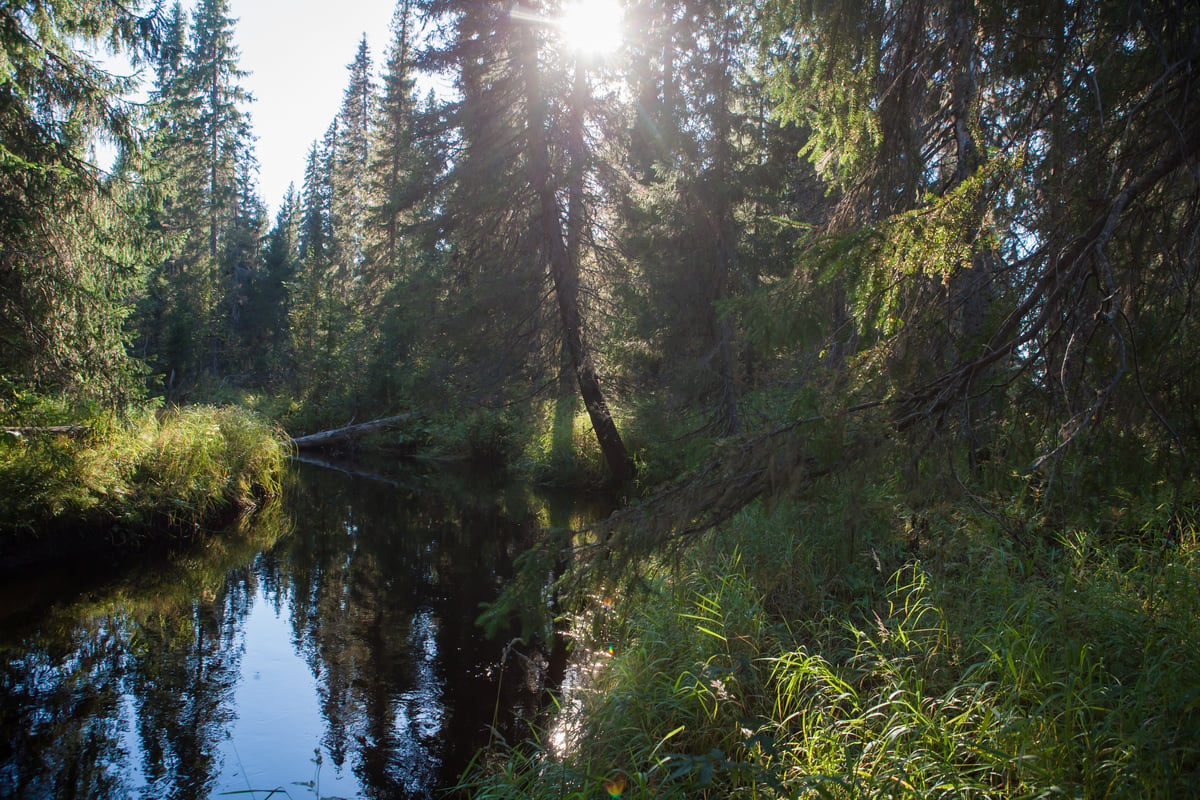
The narrow belt of old-growth forest along the stream – the so called “water protection zone” according to Russian national legislation is left untouched inside the clearcut area.
An Intact Forest Landscape is mostly untouched by human activities, like industrial logging. It is not scarred by roads or other infrastructure and it is large enough to maintain healthy biodiversity.
Following a Greenpeace campaign in 2001 (article in German), for the next 15 years and after several agreements between logging companies and NGOs, logging in the core of this beautiful and precious forest was stopped. And, in 2011, regional authorities included parts of the Dvinsky Forest on a list of future protected areas. Sounds good, right?
Well, no.

Designated protection area in the Dvinsky forest, Askhangelsk region, Russia
Five years on, the Dvinsky Forest is still not protected. Logging companies and industry lobbyists are trying to back out of the agreement to leave the forest alone. They are putting pressure on regional governments to allow the razing of parts of the forest. Unfortunately, the regional government seems to be afraid of upsetting the industry.
The key companies operating in the Dvinsky Forest area are Arkhangelsk Pulp & Paper Mill, ICE Titan, Solombalales and Region-Les LLC. If allowed to continue, their destructive “wood mining” approach could erase the ancient forest entirely.
Dvinsky could be gone in a decade
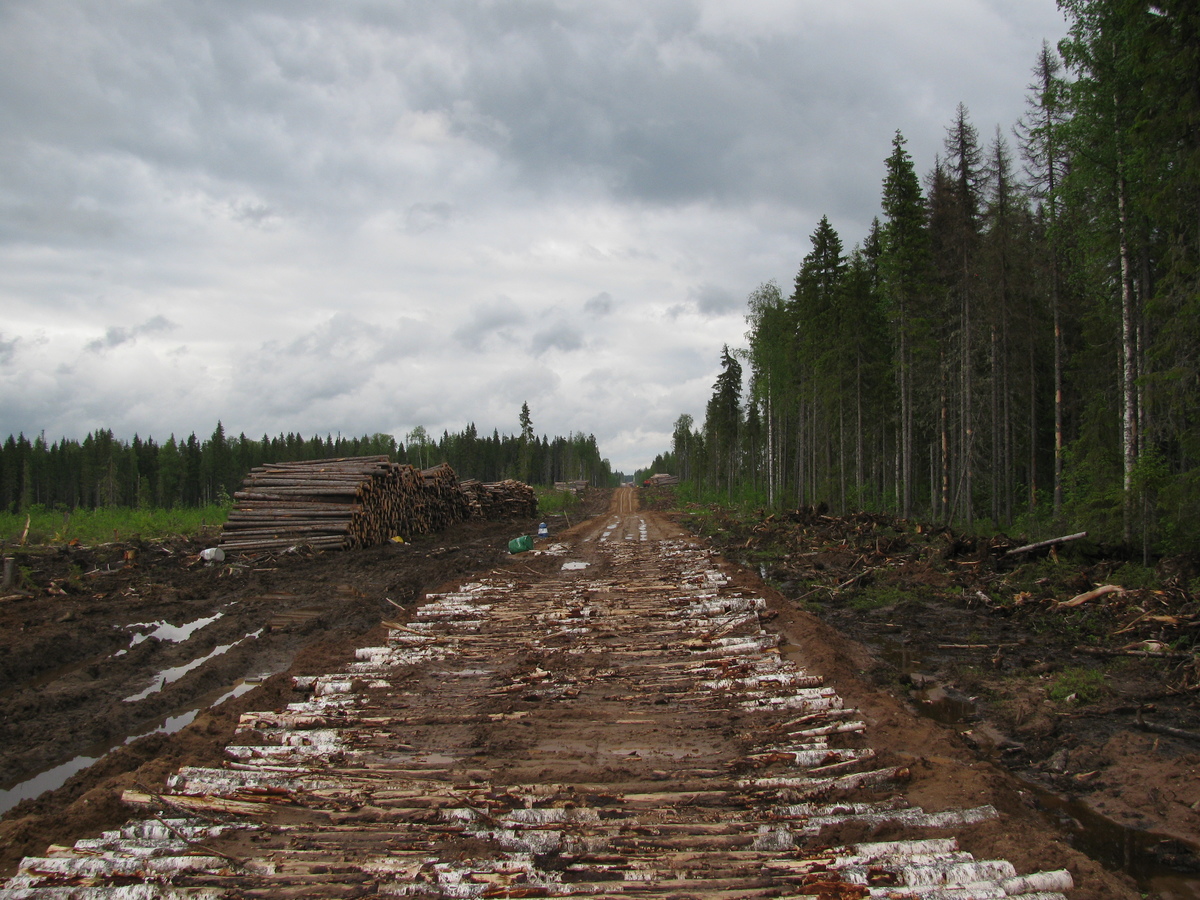
Road adjacent to large clearcut inside Dvinsky Forest (IFL) in the Solombabales (Boretskaya) concession area. Road building and clearcuts are drivers of IFL fragmentation and degradation. Arkhangelsk Region, Russia.
Companies in the Arkhangelsk region, which is home to the Dvinsky Forest, cut trees in one area, move on to another and mostly don’t reforest what they have harvested. This leads to an environmental dead end: loggers eventually run out of managed forest to fell, which causes them to move further into intact ancient forest areas to “mine” more timber.
Russian law still allows for the unsustainable exploitation of forests. Greenpeace Russia is demanding that the Russian government formally protects the area, as it had promised. If the government fails to halt destruction, the Dvinsky Forest will be lost within a decade.
Certified forest destruction
In the Arkhangelsk region, forest certification schemes do not serve to protect the forests but nonetheless offer logging companies increased access to global markets.
The Forest Stewardship Council (FSC) brand, for example, doesn’t guarantee that timber and other forest products weren’t sourced in a forest such as the Dvinsky: While many companies are currently certified or in the process of becoming certified, others have had their certificates revoked, or allowed them to lapse. Some companies access wood from areas labelled as FSC “controlled wood” but, in fact, much of their timber comes from intact forest areas.
The Arkhangelsk region is rich in intact areas like the Dvinsky Forest. The international FSC membership agreed in 2014 that the vast majority of these remaining stands need protection. This is what the FSC Motion 65 is about. However, the implementation of Motion 65 is in jeopardy.
Another certification system growing rapidly in the region, the Program for the Endorsement of Forest Certification (PEFC), is very weak and doesn’t have the support of leading conservation groups or social movements. However, companies including Solombalales are already planning to use it. This is a real threat to precious intact forest.
Real protection needed now
Logging companies, consumers and regional authorities all have a part to play to ensure that Dvinsky Forest survives and thrives.
Greenpeace is calling on loggers to stop intruding into intact areas of the forest and is asking authorities in Arkhangelsk to use their regional land use plan to shore up protection. Likewise, FSC must immediately act on its commitment to protect intact forest landscapes.
The world cannot afford to lose any more of Dvinsky or any other part of the Great Northern Forest. This vast forest ecosystem encircling the Arctic is essential to protect biodiversity and mitigate climate change. The health of people and our planet depend on it.
Join the call for forest protection.
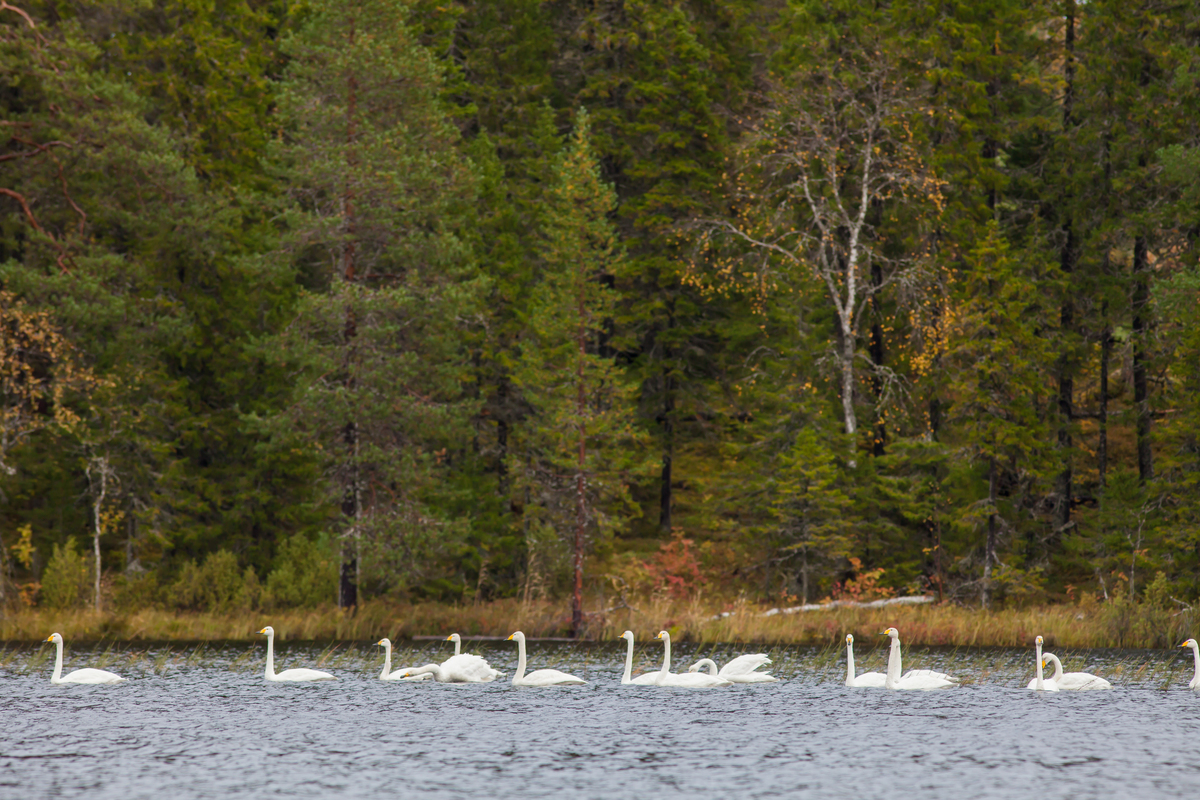
Whooper swans in a forest lake. Intact Forest Landscapes (IFL) in Russia are huge forest areas (more than 500 km2 or 50,000 hectares) without settlements, transport infrastructures and economic activities.
Erika Bjureby is the Great Northern Forest global project lead at Greenpeace Nordic

